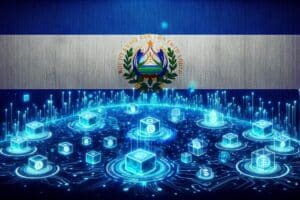Just 2 months ago, Bitfinex Securities, a company governed by the iFinex group, obtained the first license for “Digital Assets” in El Salvador and launched its own service for issuing securities represented by tokens.
Today, the same company announces the introduction of a debt token, in the style of a “Volcano Bond”, which will be used to obtain the capital necessary to build a large hotel complex near the international airport of the South American country.
The digitalization of El Salvador continues, which after embracing the Bitcoin standard in 2021 and diving into the mining industry, is trying to revolutionize the real estate market using so-called tokenized bonds.
All the details below.
Bitfinex launches a debt token in El Salvador to build a hotel complex in the country
Bitfinex Securities, an entity belonging to the iFinex group, announced today the launch of a debt token (HILSV) in El Salvador, issued by Inversiones Laguardia S.A. de C.V., which serves as an alternative form of microcredit to expand the country’s real estate market.
This is a tokenized debt, similar to the recent Volcano Bonds managed by the same subsidiary of Bitfinex, which will attract the necessary capital to build and develop a new Hampton by Hilton hotel complex located at the international airport of the Salvadoran Nation.
Let’s talk about a structure of 4,484 square meters on five levels, with 80 rooms, five commercial spaces and other hotel amenities, including a pool, restaurants, gym, gardens and multipurpose rooms.
It is estimated that the construction of the hotel, financed through the debt token HILSV, will not only ensure a significant flow of tourists but also create approximately 6,000 direct and indirect jobs.
At the same time, many small investors will be able to access investments in markets that were previously completely inaccessible to the less affluent.
the HILSV debt token aims to raise 6.25 million dollars with a 10% premium and a duration of 5 years with a minimum investment of 1,000 dollars.
Just like Volcano Bonds, HILSV will also be The token will circulate on the Bitcoin sidechain Liquid Network and will be traded in US dollars and USDT.
This new asset class allows for more efficient access to microcredit, leveraging the potential of tokens and blockchain technology, and enables the rapid raising of capital in a market that is significantly broader and more intriguing than the borders of Central America.
Regarding the news, we can report what was stated in the press release by Paolo Ardoino, CTO of Bitfinex Securities:
“The HILSV token marks the first tokenization of digital assets from El Salvador and represents an important step in the development of its emerging capital market, as well as the introduction of a new asset class in the market. For the first time, investors who normally do not have the opportunity to invest in such assets have the chance to do so, while issuers in markets with limited access to capital can tap into a new asset class to raise funds.”
The fundraising campaign will start on May 13, 2024 and is expected to last for about a month.
The digitalization phase in El Salvador continues through Bitcoin and tokenized assets
The launch of the HILSV debt token in El Salvador, which comes just a few months after obtaining the first license to operate in the digital asset market by Bitfinex Securities, represents only the tip of the iceberg of a broader phase of digitalization in the country initiated in 2021.
It was precisely in that year Nayib Bukele, president of the small paradise of Central America, elected bitcoin legal tender expressing his intention to create a circular economy around the cryptocurrency.
After investing in the mining sector of the same cryptocurrency, finding solutions to power the production of new BTC through renewable energy sources, El Salvador has begun to tap into the inherent opportunities of the token world to completely relaunch the country, zero out old debts, and improve its reputation abroad.
In 2023, the so-called “Volcano Bonds” were launched, inaugurating a project that aims to exploit the volcanic resources of the country through a direct partnership with the miner Luxor Technology, to finance the construction of the next “Bitcoin city”.
Thanks to the exploration of these new tokenized debts, supporters of the pro-crypto policy Bukele, in addition to creating favorable working conditions for residents, estimate to zero out the country’s debt by 2030, accumulate 20,000 BTC, bring GDP to 120 billion and raise the Nation’s rating to “A”.
I told you when
sovereign debt was $30 cents – these bonds would trade at par in 2 yrs.
By 2030, #ElSalvador:
– Debt Free
– 20,000 #Bitcoin in reserves
– credit rating ‘A’
– GDP, $120B
– 1 million+repatriations
– 10,000 free passports for artists & builders https://t.co/7wZW31yMdf pic.twitter.com/Ealh1qdjzn— Max Keiser (@maxkeiser) April 9, 2024
It must be said that so far the token bond experiment is working very well: a few months ago El Salvador, with the collaboration of Bitfinex Securities, successfully completed a tokenized bond offering of 5.2 million dollars with a duration of 36 months and a 10% coupon.
We will see in the coming weeks if the launch of HILSV will have the same success, and will push El Salvador to delve even deeper into the world of microcredit facilitated on blockchain, generating collective well-being for the entire country.
Speaking of good intentions, Roberto Laguardia, president of Inversiones Laguardia, commented with this optimism on the development of new forms of tokenized debt:
“The recent laws on digital assets will grant us access to capital markets that were previously closed to us. This access will allow us to develop crucial infrastructure related to tourism, unlocking the growth potential in the tourism sector. This expansion will result in economic benefits for every Salvadoran citizen.”


